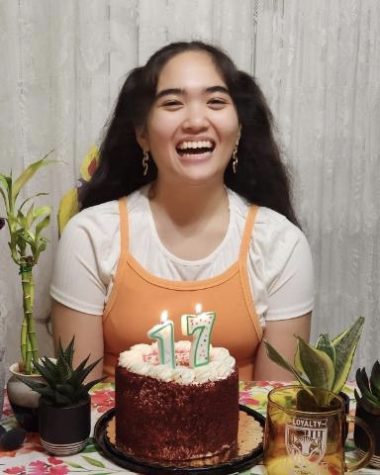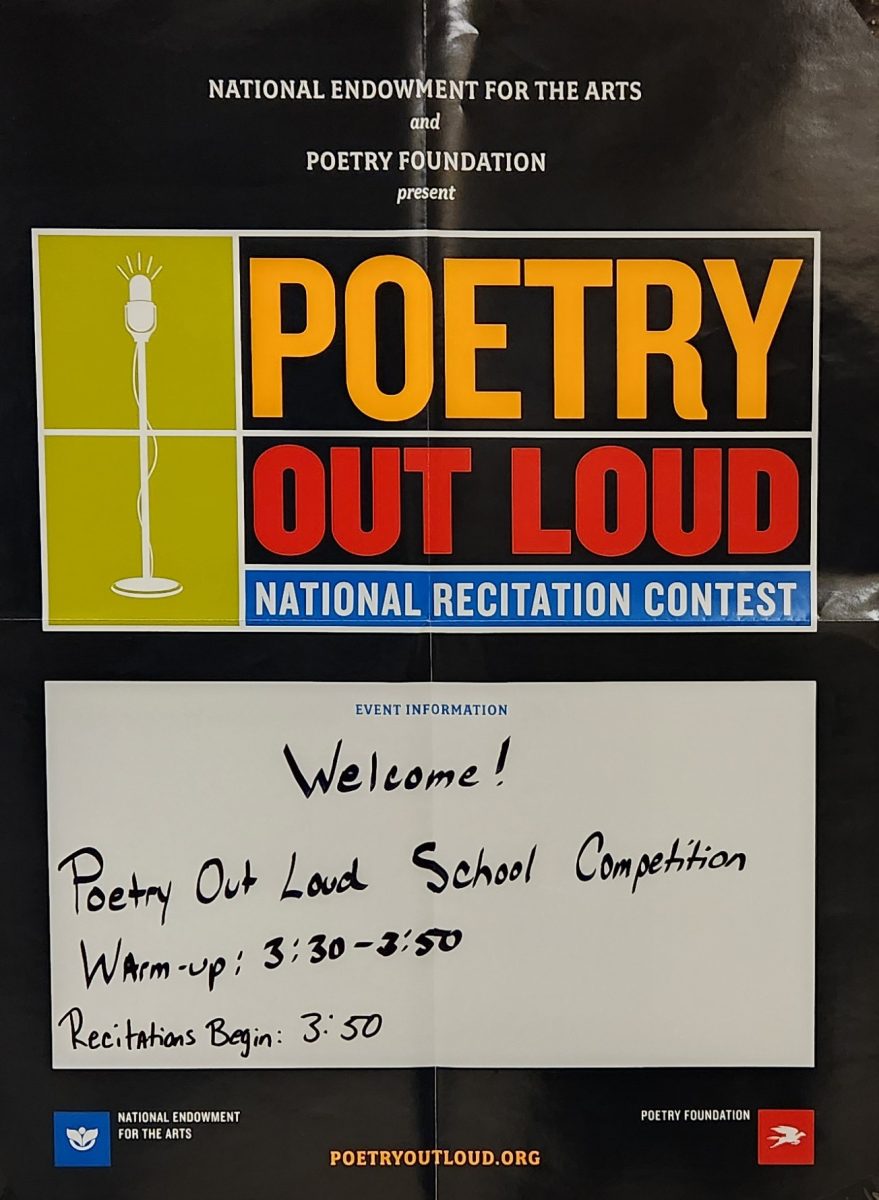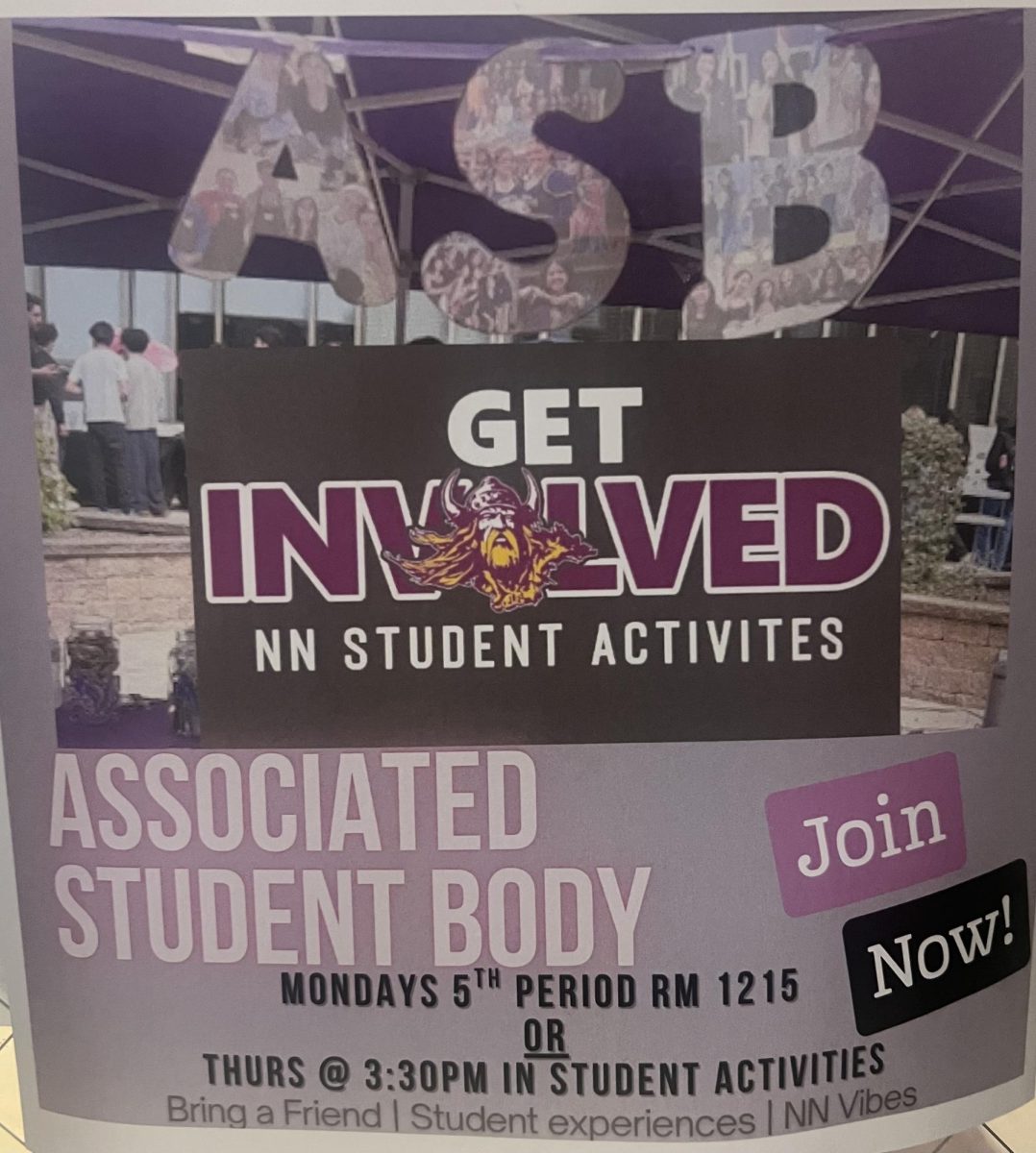On Feb. 1, 21 students participated in a schoolwide Poetry Out Loud competition, with senior Bianca Joaquin being declared the winner and advancing to compete in the Feb. 14 Chicago regional competition, and seniors Anna Copeland and Minha Khan finishing as runner-ups.
According to the organization, Poetry Out Loud is a national arts education program that allows students to master public speaking skills, build self-confidence, and learn about literary history and contemporary life. All contestants were required to select, memorize, and recite two poems listed on the Poetry Out Loud website in front of a panel of judges composed of English teachers Courtney Hanson, Laura Wright, Jenny Philip, Jason Mormolstein, and Jay Cha. Grading was calculated based on a summary of five categories, including physical presence, voice and articulation, dramatic appropriateness, evidence of understanding, and overall performance. For more in-depth clarification on the grading scale used to evaluate individual recitations, you may find the entire rubric here.
In order to execute an effective recitation, students were challenged to not only memorize their poems but learn how to properly convey the literary tone changes through vocal expression and body gestures.
Freshman English teacher Courtney Hanson, who served as the primary facilitator of the event, shares the difficulties that students often encounter when being tasked to memorize and recite a poem in front of a live audience.
“It’s really complicated to, first of all, just memorize a poem,” Hanson said. “But it’s not just memorizing a poem. It’s interpreting and striking the right tone with your recitation, and really interpreting the meaning of the poem. A lot of times we have students who do a great job with the memorization but their interpretation and their evidence of the poem just isn’t quite there.”
When navigating the selection process through the Poetry Out Loud website, students are advised to choose poems that allow them to establish a personal connection in order to achieve the best results.
Senior and contest winner Bianca Joaquin chose to recite the poems Siren Song by Margaret Atwood and Lineage by Margaret Walker, both of which contained themes she found relatable to her own interests and life experiences.
“I chose Siren Song mainly because I’m a big Percy Jackson fan,” Joaquin said. “But also because the poem is told from the perspective of a siren, the Greek mythological being with the body of a bird, wings, and the head of a woman. I just read Circe by Madeline Miller over winter break and just thinking about the portrayal of women in mythology and how oftentimes monsters are characterized as female because they do not fit into the expectations of women that women are perceived to fit into in society. And for Lineage, that poem is about this woman talking about her grandmothers and how [they] were so strong, mainly working as agricultural workers. That reminded me of my own grandmother and her family because they used to work on sugar plantations in the Philippines.”

When attempting to find effective rehearsal techniques, many students choose to practice reciting in front of a mirror or friends and family to authentically simulate the feeling of being on stage in front of an audience. Additionally, contestants may take advantage of the support of English teachers and outside mentors to guide them through the often difficult process.
Senior and runner-up Anna Copeland emphasizes the importance of reaching out for assistance as needed and selecting a poem that resonates on a personal level.
“Shoot your shot, don’t be afraid to ask for help,” Copeland said. “If you have friends or teachers to practice with, that is definitely a really great way to improve and also just to build your confidence because some positive feedback can go a long way. And read several poems, don’t just pick the first one you find. Finding a poem that really speaks to you can go measures.”
Learning how to interpret one’s poem can also present a formidable challenge to students attempting to dissect the complexity and nuance embedded within poetry.
That being said, Joaquin encourages contestants to be willing to embrace poetry as a creative form of expression and not to become overburdened by trying to stay confined to predetermined expectations.
“Pick a poem that speaks to you,” Joaquin said. “Don’t be afraid of poetry. Don’t be afraid of the poem, and also don’t be afraid of making mistakes if you’re, let’s say, in the middle of saying it and it goes a different way. It doesn’t have to be perfect, it has to be poetry. That creative expression is different for each person.”
The Chicagoland Regionals Competition, which takes place on Feb. 14 at the Poetry Foundation, will feature high school students who have won the competition at their respective schools located throughout the Chicagoland suburbs. As the winner of the Niles North competition, Joaquin will be competing for a chance to advance to the state level, while Copeland and Khan will also be attending to provide moral support as the schoolwide runner-ups.
Joaquin elaborates on the goals she will strive to achieve as she prepares to perform in front of the largest audience she has ever experienced.
“I’d like to still memorize my poems,” Joaquin said. “I feel like this is going to be the biggest crowd that I’ve ever performed in front of. I think my goal is to get through it and deliver the poems to the best of my ability.”
Looking ahead to the next stage of the competition reveals a hint of optimism about the future of poetry within schools despite those who claim that poetry is a dying art form. To better publicize the event and spread the word about the annually held competition, English teachers and literary-based student organizations are encouraged to inform their students of the benefits of studying poetry and partaking in spoken word literature. Increasing the number of contestants participating in future Poetry Out Loud competitions will ensure that the art of poetry is appreciated not just today, but by generations of students to come.
















Courtney Hanson • Feb 9, 2024 at 8:30 am
Aiden,
Thank you so much for writing this feature. You did a great job with it. I love the quotes from Bianca and Anna. Thank you for bringing more exposure to POL.